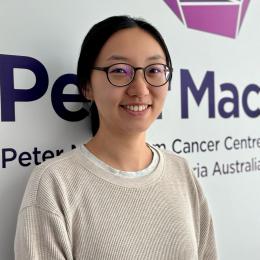Gene discovered that could see common household drugs harnessed to fight cancer spread
10 September 2013

For many years, doctors have observed the beneficial impact of non-steroidal anti-inflammatory drugs (NSAIDs), such as aspirin, in cancer, without fully comprehending the biological processes involved. Now, researchers from Peter Mac’s Tumour Angiogenesis Program have pinpointed a link between NSAIDs and the ability for tumours to spread in the body.
Their research was recently published in the world’s pre-eminent cancer biology journal Cancer Cell, and was helped made possible by generous donations from the public. With the help of our donors, the team discovered that a gene (pgdh) links the growth factors – released by tumours to attract the blood and lymphatic vessels they need to flourish and spread – to the prostaglandin cellular pathway – the pathway that can cause inflammation and dilation of vessels throughout the body.
In essence, the growth factors released by tumours also encourage nearby collecting lymphatic vessels to widen, increasing the capacity for these “supply lines” to act as more effective conduits of cancer spread, explaining the beneficial effects of NSAIDs in cancer.
With many clinical trials around the world currently investigating the ability of NSAIDs to target the prostaglandin pathway, understanding this link unlocks a range of potentially powerful new therapies that could help contain the spread of a range of cancers, including breast and prostate cancer.
Help make more research like this possible.
@Follow us on Instagram (@SupportPeterMac)







